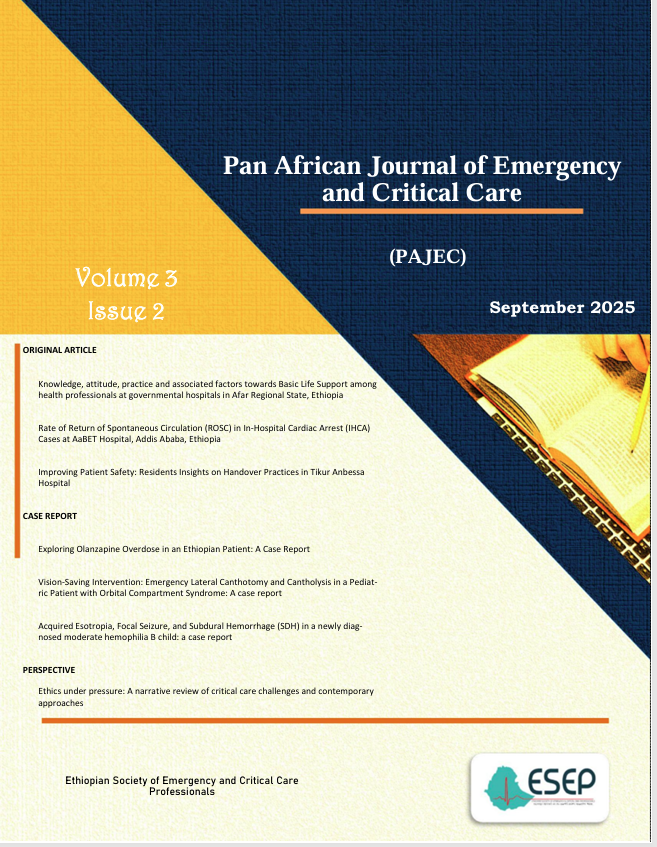Improving Patient Safety: Residents Insights on Handover Practices in Tikur Anbessa Hospital
DOI:
https://doi.org/10.58904/2025/208Keywords:
Knowledge, Attitude, Practice, Patient handover, Health care communication, Patient safety, Quality of careAbstract
Background: A patient handover refers to the transfer of care from one care provider to the next and involves three aspects: a transfer of information, responsibility, and authority. Researchers and hospitals have been implementing different standardized models of handing over patients and training their staff on how to use this model.
Objective: To assess the knowledge, attitude, and practice of residents currently doing their residency at TASH toward the effectiveness of the presently implemented handing-over system of admitted patients and the use of standardized methods.
Methods: A cross-sectional survey was conducted, which included current residents at AAU, School of Health Science, using a structured questionnaire. Residents who had their previous attachment at the in-patient units of TASH from 2018-2021 were included. The study was conducted from August 2021 to November 2021. Study participants were given a consent form to participate and asked to complete a structured questionnaire online. The data collection instruments were coded, and data quality was checked daily. Data entry and cleaning were done using Microsoft Excel 2013, then exported to the SPSS version 26.0 statistical package for analysis. Outcomes were analyzed using descriptive analysis.
Result: This study showed that residents were knowledgeable (n=245, 90.8%) about the consequences of poor handover on patient outcomes. However, they lacked knowledge (n=245, 3.1%) regarding standardized methods of handing over patients. Their attitude towards the current method they were using to handover patients was not good as well (n=245, 72.7%). Rather, they showed a good attitude (n=245, 87.6%) towards change to a standardized and proper way of handover. They also felt positive about the possible training of all residents on these standardized methods. When it comes to practice, this study showed a significant number of residents reported having poor practice (n=245, 42.5%).
Downloads
Published
How to Cite
Issue
Section
License

This work is licensed under a Creative Commons Attribution-NonCommercial-NoDerivatives 4.0 International License.
This is an open access article distributed under the Creative Commons Attribution License, which permits unrestricted use, distribution, and reproduction in any medium, provided the original work is properly cited.


